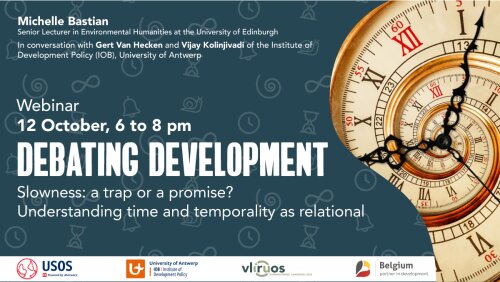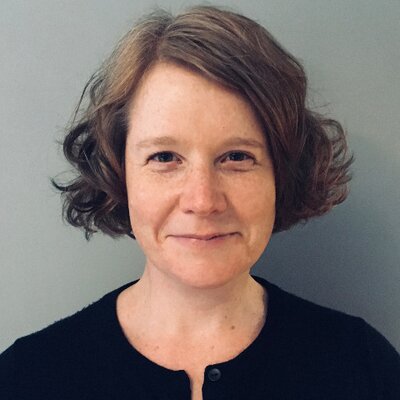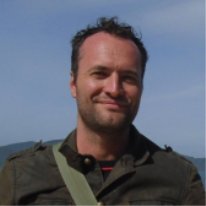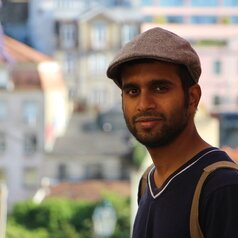Watch the webinar


In the introduction of this year’s series of Debating Development, we focus on the role of the modern linear conception of time as ‘ticking clock’ in sustaining the imaginary of a chronologically improving development model rooted in capitalist modernity and colonial practice. The first session lays the groundwork for theoretical and social movements that propose alternative understandings of time and why these matter for revealing the ways in which relating to each other and to non-human kin refuse to be disciplined into the homogeneity of linear time. Some of these alternatives are being brought together under the banner of Slow Movements. While these movements emerge as a response to the accelerationist tendency of Western development models, there is the danger that if their focus is only on the pace of development to make it more ‘sustainable’ this does not sufficiently interrogate the structural hegemony of the directionality of future promises of progress for some, and present and future exploitations for others. In this session we will explore the promises and pitfalls of understanding time and temporality differently, especially in conversation with slow movement and its relation to (alternative) concepts of ‘development’.

Dr. Michelle Bastian works in the areas of critical time studies and environmental humanities, with a particular focus on the relationship between time and belonging. She completed her PhD in Philosophy at the University of New South Wales, and was a Research Associate at the Centre for Research on Socio-Cultural Change, University of Manchester, before taking up her current role in Edinburgh. Since 2013 she has been involved in eight AHRC funded research projects, five as principal investigator. These projects looked at time and community, local food projects, sustainable economies, temporal design and transition towns. Her work has been published in a range of journals including Environmental Humanities, GeoHumanities and New Formations. Michelle is an editor of four collections including The Social Life of Time (Time & Society 2020), Field Philosophy and Other Experiments (Parallax, 2019), and Participatory Research in More-than-Human Worlds (Routledge, 2016), and is an Editor-in-Chief for the journal Time & Society (SAGE). Michelle is the founder and convenor of the Temporal Belongings Network, member of the steering committee for the Edinburgh Environmental Humanities Network,, member of the Extinction Studies Working Group and co-founder of the Transition Research Network which she co-cordinated from 2011-2017.

Dr. Gert Van Hecken is lecturer at the Institute of Development Policy (IOB), University of Antwerp, and associate researcher at Nitlapan-UCA, Nicaragua. His research focuses on the politics of knowledge in conservation and development, on critiques of neoliberal natures and ‘green economy’ proposals, as well as on alternative (transformational) paradigms related to social and environmental justice. Geographically, most of his research has focused on Central- and South America, where he has also worked as the Nicaragua country representative for the Belgian development NGO Broederlijk Delen.

Dr. Vijay Kolinjivadi is postdoctoral fellow at the Institute of Development Policy (IOB). He has spent over a decade exploring the social, cultural, and political implications of 'ecosystem service' policies on impacted communities in Central and South Asia and also in Canada. In particular, he focuses on the social and environmental justice aspects of such policies with respect to complex socio-ecological decision-making and in the spirit of degrowth and decolonial development futures.